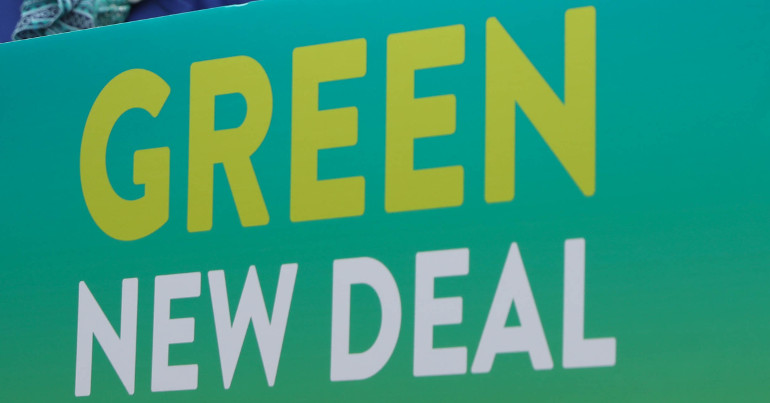Building a Green, Black and Brown New Deal

Around a year ago I knocked on the door of a Black family. The parents asked me about jobs and opportunities for young people. It’s something that comes up fairly often on the doorstep in Hackney and it’s almost always people of colour who raise it. Government policy, investment and changes in the economy have seen Hackney change dramatically as schools, public transport and parks have been improved. But those benefits have not reached everyone, gentrification has forced out many of Hackney’s poorer residents and many people of colour are still waiting for their fair share.
When I think about the Green New Deal, I think about the young people from my neighbourhood and my community, how will they see the benefit of a Green New Deal? Will they get the jobs they’ve been unable to get for generations? Will they get the training to do those jobs long into the future? Will small businesses owned by people of colour see any of the contracts to retrofit our homes?
The original New Deal
If you look at the original New Deal, you’ll find it was pretty disappointing for people of colour. Some of the programmes did relieve the poverty and destitution they faced, but most actively discriminated against them.
The National Recovery Administration, which provided jobs and set labour standards, prioritised white Americans for jobs, and set higher pay scales for whites than for people of colour. The new Federal Housing Authority wouldn’t give people of colour a mortgage if they wanted to buy in a white neighbourhood (a practice later known as red-lining), and jobs that were traditionally done by people of colour were excluded from the benefits of the Social Security Act. On top of this, efforts to pass civil rights laws, including a law against lynching, were sabotaged by Southern Democrats.
Building a Green, Black and Brown New Deal
A Green, Black and Brown New Deal needs to be about creating jobs and opportunities across our communities. It can’t just be about throwing money at the existential threat of climate change. If we are wanting to change our economy to be more sustainable, then we need to change our society to be more equal. For me, that means ensuring a fair share of the jobs and investment go to people of colour. Government statistics already show that black and brown communities have higher rates of unemployment, even when we go to university and get educated we still find ourselves behind when it comes to jobs and opportunities.
So Greens should call for a ‘Justice for Communities of Colour Act’ guaranteeing real job opportunities, support for small businesses, expand community services, action on school exclusions, and an end to police harassment as part of a Green, Black and Brown New Deal. We need to ensure each programme created by the Green New Deal has to set out in detail how it will help break the structures of racism in our economy. And we need people of colour to play a leading role in the Green New Deal itself.



It should go without saying that a GND should focus its investment towards disadvantaged communities, which includes most communities of colour. But I don’t think that it’s the best vehicle to address the inherent problem of implicit supremacy affecting every aspect of UK life. It can’t address things like racism in social work policy, school exclusions, the criminal justice system, university admissions, employment, housing and service provision. Professionals in all these fields let racialised assumptions inform decisions having life-changing effects on the people involved, disproportionately affecting people of colour and perpetuating disadvantage. But this needs addressing at a much more fundamental level.
Politics and politicians cannot solve the existential crisis we face, since politicians created the system, along with vested interests that have brought us to this point. A green new deal will simply recreate what we see now. “Fairer” is not fair, ‘more equal’ is not “equal’. GND jobs will still be slavery with public sector drivers for a marginally better wage than the private sector. And the jobs will employ people of toxic masculinity who few would feel safe working with. Tinkering with a poisonous system of forced inclusion will not solve the problem. There is no political solution, the world’s billionaires have it all stitched up. The only route out of this is a violent one, meeting the violence of neoliberal capitalists head on. Oil consumption keeps rising and cars keep getting bigger, and more people are flying than ever before, and inequality won’t be addressed by a GND. And politicians of all stripes will decide on minimum wage – for others – that about 10 percent of what they themselves are paid. And then there are pensions and the fact that politics isn’t actually work.